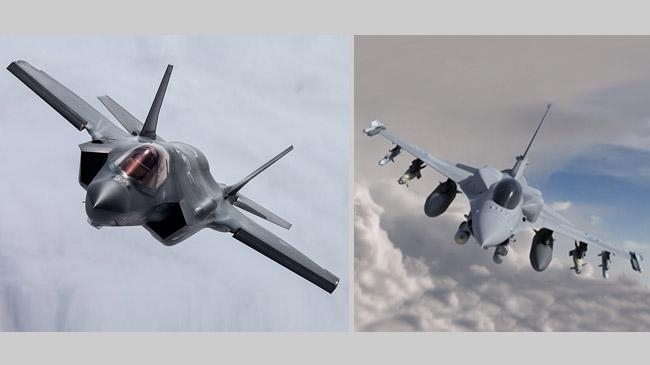Trump’s policies raise questions
Canada and European countries are reconsidering their purchases of expensive American weapons, such as the F-35 Joint Strike Fighter, due to the controversial foreign policy of US President Donald Trump. The Trump administration’s unexpected decisions and doubts about its commitment to the NATO alliance have raised questions about whether the arms purchase is strategically sound. Trump has moved away from traditional US foreign policy, increased closeness to Russia and suspended most foreign aid. He has also expressed doubts about America’s commitment to defending NATO members from Russian aggression. Trump’s Defense Secretary Pete Hegseth told a meeting of European defense ministers that “hard strategic realities” are preventing America from focusing primarily on European security.
In this situation, sales of advanced American weapons, such as the Lockheed Martin-built F-35 and F-16 fighter jets, could be affected. The war in Ukraine has led eastern European NATO members to long-term plans to replace their Soviet-era weapons with Western weapons, especially the F-16 and, in some cases, the F-35. But some NATO countries are now reconsidering their reliance on American defenses and are considering buying European fighter jets such as the Saab Gripen, Eurofighter Typhoon and Dassault Rafale.
In Canada, where Trump has launched a trade war, new Prime Minister Mark Carney has ordered Defense Secretary Bill Blair to review the F-35 purchase. Blair will consider whether there are other options in the “changing circumstances.” Portugal is also reconsidering its purchase of the F-35 because of concerns about the recent instability in the United States.
Each F-35 fighter jet costs about $85 million and can cost up to $150 million with support equipment and spare parts. The plane is a unique combination of stealth and maneuverability. The total cost of the project is estimated to exceed $1.7 trillion.
Many believe that the plane could have a “kill switch” that would allow the US to disable the plane at any time. The Pentagon has rejected this idea. They say the F-35 is a coalition/cooperative platform and they are committed to providing full functionality and support to all users. But experts say the US can still control the planes through technological upgrades.
If other countries refrain from buying the F-35, sales of European fighter jets such as the Saab Gripen, Eurofighter Typhoon and Dassault Rafale could increase.
David Jordan, a senior lecturer in defence at King’s College London and co-director of the Freeman Air and Space Institute, said European leaders used to think it was easy and cost-effective to rely on the American defence industry. But the Trump administration’s decision to withdraw from Europe could change that perception.
Jordan said European countries would need to pool their money and resources to invest in research and development, production and supply chains, which are often complicated by a lack of consensus among countries. But he thinks it could be possible in the next 5-10 years. “The European defence industry is capable of producing everything they need,” he said.
French President Emmanuel Macron is already trying to persuade his allies to buy European defense contractors and weapons systems, especially the French-made Rafale fighter jet.
“Those who buy the F-35 should be offered the Rafale,” Macron told reporters at a news conference with regional French newspapers on Friday. “That’s how we make progress.”
If the Europeans increase their production, the profits of Lockheed Martin and other American defense companies will be greatly affected. Jordan believes American defense contractors are worried about Trump’s next move. “At what point do they say, ‘We don’t like this, there are billions of dollars at stake here’?”
The White House did not immediately respond to a request for comment.





